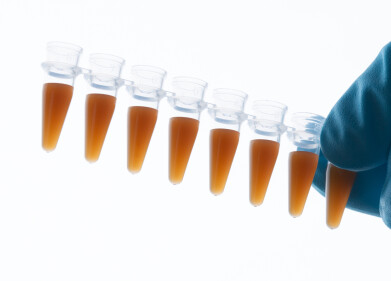Laboratory Products
Are Statins Safe?
May 05 2017
Typically prescribed to lower blood cholesterol levels, statins have quickly gained momentum as the medication of choice for millions of patients across the UK. Also known as HMG-CoA reductase inhibitors, they block the function of a liver enzyme that helps produce cholesterol. But while they’re touted as a ‘miracle’ solution for reducing the risk of cardiovascular disease, some critics are beginning to question their expanding popularity.
Yes, the lipid-lowering medications are proven to protect hearts. But according to some experts, the benefit-to-risk balance changes for patients who haven’t experienced heart problems in the past. Decades of study has been channelled into the use of statins, and researchers are now warning that there could be unforeseen risks. Especially for those who take the medication as a preventative measure, or are simply misinformed or incorrectly prescribed.
The dangers of combating cardiovascular disease
They claim that while too much cholesterol can be bad, the waxy, fat-like substance plays an essential role in supporting almost every cell in the human body. Cells use the compound to produce hormones and other vital substances, as well as keep their membranes spongy and porous. This means that preventing the body from creating healthy levels of cholesterol could result in negative side effects.
While documented cases are rare, some sceptics stress that statins could raise the risk of developing type 2 diabetes, and create muscle pain or damage. Other unconfirmed side effects are explored in medical literature, and include cognitive decline, cataracts and kidney problems.
Statins labelled the “biggest human experiment” in history
James Wright, chairman of the Therapeutics Initiative at Vancouver’s University of British Columbia warns, “Over time there could be a cumulative effect. I’m predicting we’re going to have an aging population suffering from sarcopenia, where they can’t stand up.” Increasingly concerned about mass prescribing, he predicts that the use of statins could be “the biggest human experiment we’ve ever done.”
Of course, there are plenty of pro-statin advocated out there, with some experts slamming the enduring controversy.
“I can’t think of another circumstance in health care where there is such a lot of nonsense that has been persisting for so long,” comments Rory Collins, a medical epidemiologist at the University of Oxford. In his opinion, statin cynics are shamelessly hawking distortions and misrepresentations of medical evidence.
The final verdict
So, are statins safe to use? Ultimately, it depends entirely on who is asked. At its core, the statins debate is fuelled by different approached to the way new and existing studies are designed, conducted, evaluated and presented. Facts can be twisted, details can be ignored and audiences can be manipulated. One factor is certain though. Statins are a relatively new drug, with the first cholesterol-lowering strand discovered in the late 1970s. This means that it’s impossible to draw on long-term data, and therefore impossible to claim whether or not statins are a ‘miracle’ cure or a disaster in disguise.
Modern medicine is constantly evolving, and science plays a critical role in honing new developments. For a closer look at the latest spectroscopy advancements, ‘A New Method for Patient Diagnostics. Non-Invasive Tissue Testing Improves Outcomes and Patient Comfort’ offers expert insight from Dieter Bingemann, Senior Applications Scientist for Ocean Optics.
Digital Edition
International Labmate 49.6 - Sept 2024
September 2024
Chromatography Articles - HPLC gradient validation using non-invasive flowmeters Mass Spectrometry & Spectroscopy Articles - From R&D to QC, making NMR accessible for everyone: Putting NMR...
View all digital editions
Events
Oct 15 2024 Milan, Italy
Oct 17 2024 Dhaka, Bangladesh
Oct 20 2024 Fort Worth, TX, USA
Oct 21 2024 Dalian, China
Oct 30 2024 Birmingham, UK









.jpg)








